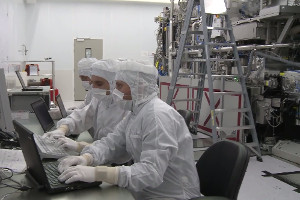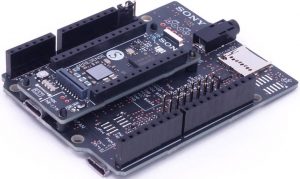Where are the phone sensors
Simply put, a Sensor is a device or device in a mobile phone that can be measured and converted into usable output signals according to certain rules.Generally, such sensors are composed of sensing elements and conversion elements.
Take the mi phone distance sensor as an example, the steps for setting the phone sensor are as follows:
1. Open mi phone, click on the desktop of the phone to open the setting function;
2. After entering the setting function interface of the phone, pull down the page, find the system application under application management and click open;
3. Find the phone in the system application interface and click open;
4. Next, you will enter the setting of phone properties, where you can see the status of incoming call. The distance sensor is set here, and turn on this option.
5. Find the distance sensor in the interface of call status, and you can see the option is on in the rear. Click this switch;
6. When the switch behind the sensor is gray, it means that the distance sensor has been turned off. In this way, the phone will not go dark when answering the phone, but it is important to prevent misoperation.

Cell phone sensors
Light sensor
Light sensors can adjust the brightness of the screen according to the environment the phone is in, and some can freely control the light and shade of the button breathing lamp.For example, in extremely bright outdoors, the screen will automatically be set to the brightest state, while in dark environment, the screen brightness will be correspondingly reduced.
Distance sensor
The distance sensor is usually used in conjunction with the light sensor.The distance sensor measures how far the phone is from your ear when you place it in the receiver.This different measurement can trigger functions such as an off screen or an automatic lock screen, and can also be used with various protective cases.
Gravity sensor
Now that phone screens are getting bigger, horizontal screens, once considered unnecessary, have become commonplace.Usually in the view of photos, video, we will generally put the phone across the operation.In some games, gravity sensors can also be used to achieve richer interactive control, such as balance ball, racing games and so on.
Acceleration sensor
The concept of an accelerometer overlaps slightly with the concept of a gravity sensor, but it's not the same.Acceleration sensors are measured in multiple dimensions, mainly measuring some instantaneous acceleration or deceleration actions.Such as measuring the speed of the mobile phone movement, in the game can trigger special commands through the acceleration sensor.The sensor is also used in some everyday applications, such as flicking, cutting songs and turning mute.
Fingerprint sensor
Since 2013, fingerprint sensors have exploded in smartphones.It can automatically collect users' fingerprints to achieve the purpose of protecting privacy.But now phones with fingerprint sensors don't just unlock devices, they're integrated with mobile payments, including Apple Pay and Sumsang Pay.
Gyroscope sensor
Remember the killer iPhone 4 app back then?It's a gyroscope.The standard mobile phone is equipped with a three-axis gyroscope, which can track the displacement changes in six directions.Some shooting or racing games we play every day need to use this gyroscope, and many applications also use gyroscope sensors to work, such as 3D photography, panoramic navigation and so on.
Magnetic field sensor
The magnetic field sensor USES magnetoresistance to measure the plane magnetic field, so as to detect the magnetic field strength and direction position.Generally used in common compass or map navigation, help mobile phone users to achieve accurate positioning.If you are partially north, south, north and south, you can easily position yourself with the electronic compass in the map.
GPS position sensor
The main function of GPS module is to receive the coordinate information of satellite through antenna to help the user locate.With the popularization of 4G network, GPS is applied in more scenarios, such as remote location monitoring with intelligent hardware, or location search after device loss.A concept needs to be clarified here. Mobile phones are usually equipped with a-gps, which is more rapid positioning through mobile network on the basis of receiving navigation satellite signals, and more advanced than ordinary GPS.
Pneumatic transducer
Pressure sensors have been used in military mobile phones before, divided into variable-volume pressure sensors and variable-resistance pressure sensors.A change in air pressure can cause a change in the resistance or capacitance measurement.General GPS can calculate your position, but for some changes in altitude you need a pressure sensor.A phone equipped with the sensor can measure how many floors you go on a day, or it can be used for indoor positioning, etc. The internal pressure sensor is mainly used to test how closed the device is.
Temperature sensor
This year's MWC's impressive tri-proof phone, which supports thermal imaging testing, USES a temperature sensor.The temperature sensor is used to detect changes in the temperature of the phone itself, which can show how hot the phone is.In terms of expansion, the temperature sensor can also detect temperature changes in the outside air, even the user's current temperature.
Hall sensor
Like a magnetic field sensor, a hall sensor converts a changing magnetic field into an output voltage, creating a potential difference between the two ends of a conductor.Some phones come with a standard set of cases that lock automatically when the case is closed and unlock automatically when the case is opened.
Ultraviolet sensor
The ultraviolet sensor USES the photoelectric emission effect to calculate, and USES the camera to shoot outdoor light source to convert the discharge effect to measure the ultraviolet intensity.Phones that use the sensors are rare, and the stability of the measurements remains to be seen.
Heart rate sensor
Heart rate sensor is common in wearable devices, but the application on mobile phone is usually set at the back of the phone, and the finger is illuminated by a high-brightness LED light source and converted into corresponding data to calculate the heart rate. The finger should be kept steady during the test, otherwise the test results will have a large deviation.
Blood oxygen sensor
Like the heart rate sensor, hemoglobin and oxygenated hemoglobin in the blood absorb different amounts of infrared and red light. When two leds of this infrared and red light are applied to the finger at the same time, the absorption spectrum of reflected light can be measured, thus measuring the amount of oxygen in the blood.

 انگلیسی
انگلیسی  چینی
چینی  آلمانی
آلمانی  کره ای
کره ای  ژاپنی
ژاپنی  فارسی
فارسی  Portuguese
Portuguese  Russian
Russian  اسپانیایی
اسپانیایی 





